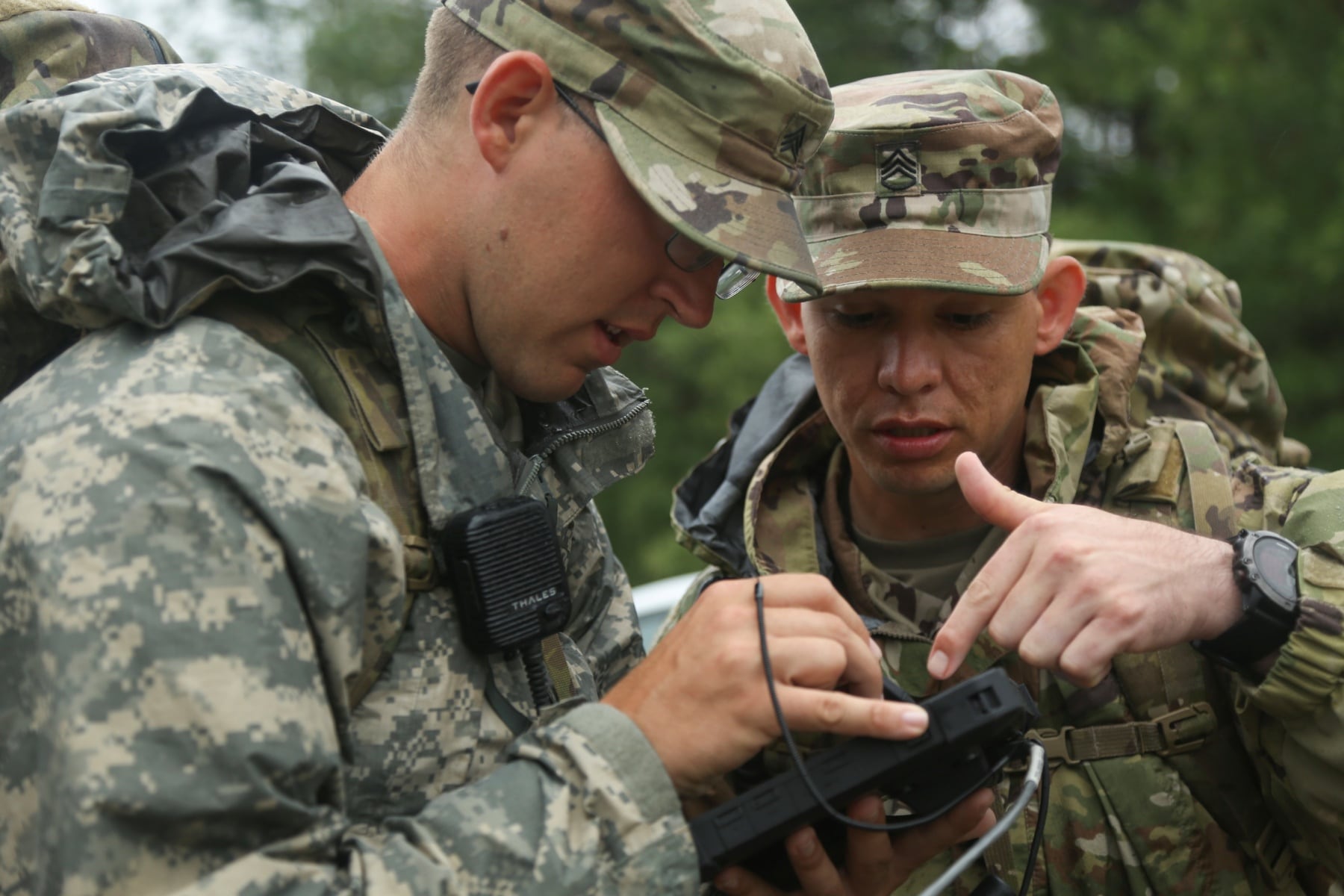Army Cyber Command has been lobbying for a name change to better reflect its growing mission, one in which its cyber professionals are increasingly focused on operating below the threshold of armed conflict every day.
Lt. Gen. Stephen Fogarty, Army Cyber commander, says his staff is providing a proposal to change their command’s name to Army Information Warfare Command.
“We are operating in the information environment, maneuvering in the information environment, every single day," Fogarty said at an event previously reported in mid-September. “And sometimes, the best thing I can do on the cyber side is actually to deliver content, deliver a message. ... Maybe the cyberspace operation I’m going to conduct actually creates some type of [information operation] effect.”
Army Chief of Staff Gen. James C. McConville said in a late-August interview that he has talked with Fogarty about the change, though they haven’t yet decided what exactly the new name should be.
“But what we’re recognizing is there is an area of competition between great powers that’s below armed conflict that we’re going to have to compete and participate in,” McConville said. “We need to create organizations and develop concepts and procedures for how we deal in that area."
“We understand that we are in an information age and we need to be prepared to operate globally in that information age like the rest of our competitors are doing,” McConville added.
The fight is happening
Information warfare is mentioned more than 40 times in the Army’s Multi-Domain Operations doctrinal pamphlet issued in December 2018. The document describes the information warfare environment — which includes social media, false narratives and cyber attacks — as one that China and Russia seek to exploit in order to achieve their goals without resorting to armed conflict.
Army Cyber says that the fight below the level of actual violence is already occurring and has also stressed a need for greater authorities to better combat threats, including fighting disinformation from sockpuppet accounts on social media. These are online identities used for purposes of deception.
Oftentimes, the authorities that the command operates under are sometimes held at too high a level and are too centralized, Brig. Gen. Richard E. Angle, Army Cyber’s deputy commanding general, said at the mid-September event.
“It’s 2019. It still can’t be true that it’s easier to drop a bomb on somebody than to send them a leaflet or an email, but in many cases that is true," Angle said during the mid-September panel discussion.
“We need to get to a place where we have message release authority, where our commanders on the ground — like how they can call in fires to support their element — can release a message into the information environment," Angle added.
Fake information used against U.S.
At this point, offensive information operations don’t appear to be targeting individual soldiers, but they are targeting the institution of the Army itself, according to Col. Gittipong Paruchabutr, who serves as the information operations division chief to Army Special Operations Command.
“Even if it’s not targeting soldier 'X' or unit ‘y,’ these accounts, these online activities are targeting general Americans and it further polarizes our divisions," Paruchabutr said at the mid-September event. “If it causes further political division within the units, it has an effect."
An example of disinformation against U.S. soldiers was seen in June 2018, when four U.S. Army Stryker vehicles collided in Lithuania. A blog post disguised as a legitimate Lithuanian news outlet claimed using doctored photographs that the Americans killed a local child in the incident.
Army Cyber wants to protect “that BCT [brigade combat team] in Poland" or "that SOF [special operations force] team in Ukraine” from disinformation campaigns like that.
"If the Army is a reflection of society and the Russians are doing identity-based targeting, well then they’re targeting our folks,” Angle said. “It’s happening and we got to do a better job of defending our soldiers.”
Kyle Rempfer was an editor and reporter who has covered combat operations, criminal cases, foreign military assistance and training accidents. Before entering journalism, Kyle served in U.S. Air Force Special Tactics and deployed in 2014 to Paktika Province, Afghanistan, and Baghdad, Iraq.
